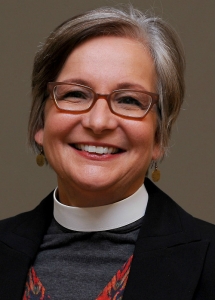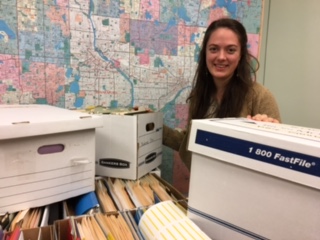 By Rev. Deb Stehlin
By Rev. Deb Stehlin
If you stop by the synod office this week, you’ll see stacks of boxes, file cabinets, and books shelves all over the place. We’re re-configuring our offices to make room for Jaddie Edwards, our new racial justice organizer. She and Emilie Bouvier, our eco-faith organizer, will take up residence right across the hall from me.
Whenever you make a move, it’s a great time to decide what’s essential. Do I really need this file? Will I ever read this book?
Last week, I got to sit at a table with church-planting executives from the mainline denominations in the U.S. and Canada. Each one came to share their latest research. I filled a legal pad with essential learnings – which I will keep on file!
One leader shared ground-breaking work by two Harvard Divinity School students. They did a deep dive to discover how millennials gather (www.howwegather.org). It’s required reading, I think. They studied 3,000 young adults and got a glimpse into the gifts this generation offers. We can learn a lot by noticing how they form community, seek personal and social transformation, use their creativity, and find purpose.
One person’s comment hit me like a thunderbolt: “If we’re not working for racial justice or addressing climate change – to millennials, it’s not the church.”
WOW! IT JUST SO happens that our synod is staffing to support congregations so they can enter into this work. And because these issues are so critical, foundations, individuals, government agencies, and ELCA Churchwide – as well as some individual congregations – were willing to provide support for the organizing positions through grants.
The “How We Gather” millennials study discovered something else essential: Even when young adults gather at Soul Cycle or The Dinner Party, even as they work for social and personal transformation, they are seeking what they call “something more.” Whether it’s named the Source of Being, The Transcendent, or God, young America thirsts for something bigger.
We can learn a lot by noticing how young people form community, seek personal and social transformation, use their creativity, and find purpose.
This isn’t anything new. The Apostle Paul encountered this reality in the first century! While he was hanging out with folks among the statues of gods at the Areopagus, he gave words to this yearning for something bigger, saying, “In
The gospel good news that we are loved by God and freed in Christ to serve the neighbor fits right in with the yearnings of so many. It starts with our belovedness. Nothing is more essential than that.
